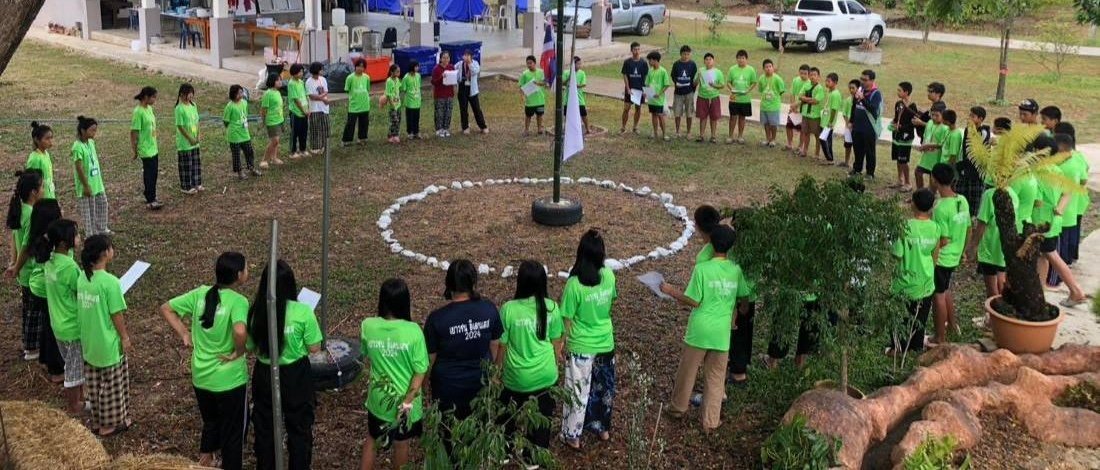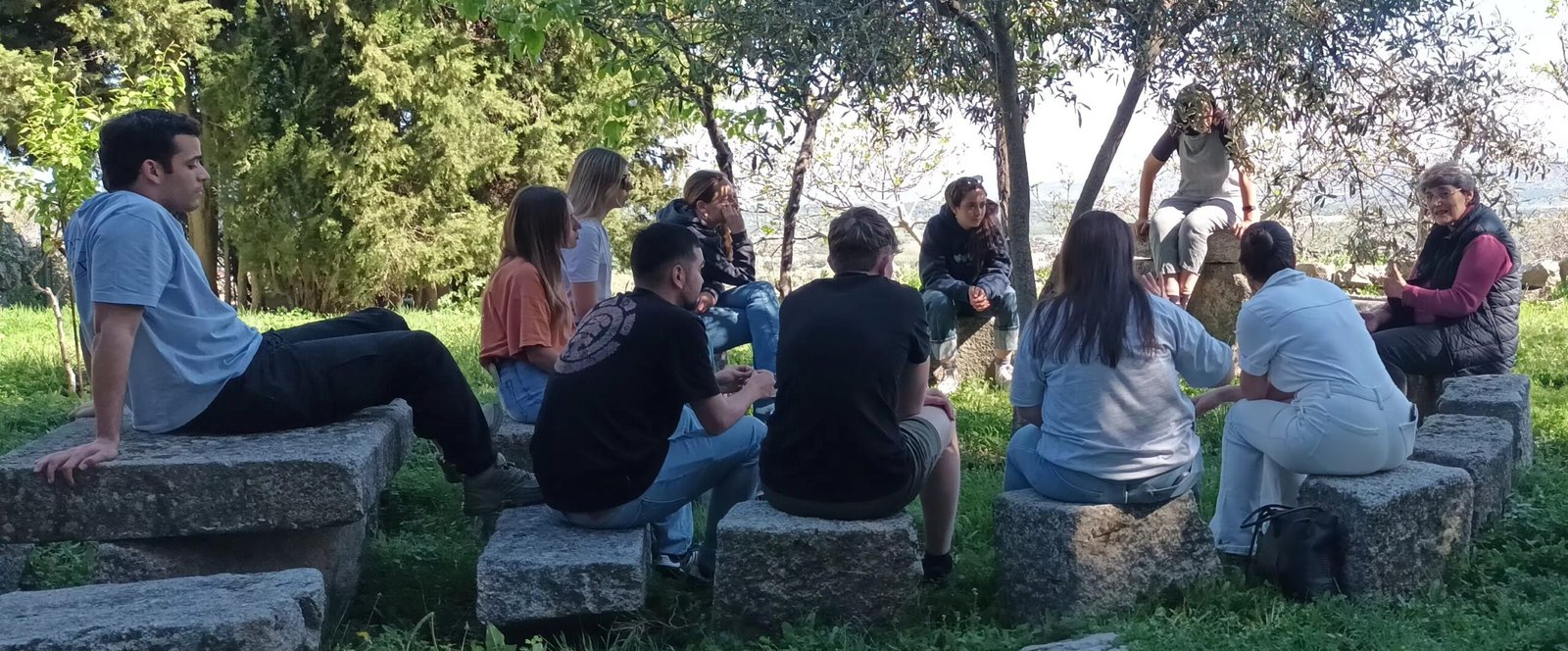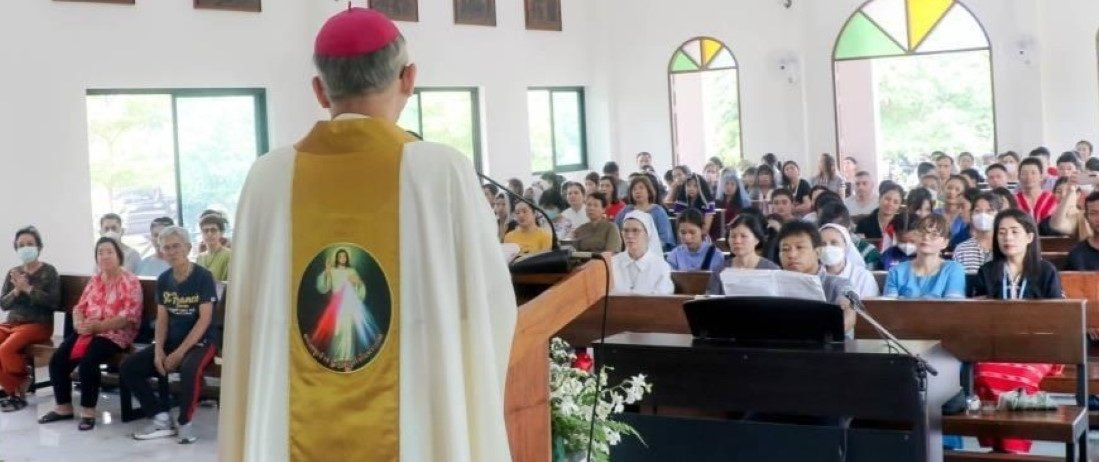
By F. Luis Casasus, General Superior of idente missionaries
Commentary on the Sunday Gospel of 06-05-18 Sixth Sunday of Easter, Peru. (Acts of the Apostles 10:25-26.34-35.44-48; 1 John 4:7-10; Saint John 15:9-17)
What a different vision! Jesus is telling us that the purpose of keeping His commandments is to find a complete joy. We, however, suffer and get desperate, spending a great deal of energy, time and effort finding ways to make good choices between the wind of passions and the peace of Christ. Will we end up believing Him?
► What is this complete joy? The First Reading gives us a clue as to the meaning of this divine bliss: The Gentiles received the Holy Spirit, they realized they had been chosen by God. And this awareness of having been selected by God through a unique, personal plan for each one of us, is the source of this joy.
But the fullness of joy is only achieved when we have the opportunity to share it with someone. This explains why the Gentiles could be heard speaking in tongues and glorifying God. For the same reason, the woman in the parable of the lost coin, upon finding it calls in all the neighbors to rejoice with her. In another context, when a scientist discovers something that no one knew before, that person cannot wait to publish it and share it with the scientific world. Conversely, when our friends show no interest in a story we tell them, an exciting event, something extremely joyful that happened to us, we feel frustrated and our joy cannot be complete.
Experiencing something for yourself is different than experiencing it with others This is a clear indication that our true consciousness is not individualistic. Our joy is enhanced by sharing; the more you share the more you have. Not only that; even unconsciously, particularly with our repentance, we can change the level of joy in Heaven: There will be more rejoicing in heaven over one sinner who repents than over ninety-nine righteous persons who do not need to repent (Lk 15: 7).
Joy is a shared state of being. It has little to do with achievements or the complete fulfillment of our plans. A couple were celebrating their first marriage anniversary. Both had planned secretly to present a gift to the other. Each wanted to give a gift the other most wanted. The day came quickly. The morning broke and there was the mutual exchange of gifts. The husband, in order to buy for his wife a comb, which she had greatly admired, had sold his pocket watch. And the wife had sold her hair from off her head to buy her husband a chain he liked very much for his pocket watch. Having opened their gifts, they realized what each had done. Tears of joy rolled down their cheeks.
Indeed, complete joy is a perfection of the joy we experience for the effort we have made, when we share our greater or lesser achievement. When the mission is accomplishing God’s will and we realize that He is really satisfied with our humble contribution, then we savor the spiritual complete joy.
Francis de Sales wrote: The evil one is pleased with sadness and melancholy because he is sad …hence he desires that everyone should be like himself.
►If you keep my commandments, you will remain in my love. Jesus did not have to come to this world to teach the Jews to obey the Ten Commandments. That was clear; it had been taught by the prophets. When He urges us to be obedient to the commandments, He refers mainly to the personal, intimate, and crystal-clear calls to immediately make two different forms of decisions:
– To remove from my heart useless and negative thoughts and desires.
– To implement and put into effect in my life any little action (not big plans!) that appears to be more perfect than its opposite: greeting or not greeting a person, being punctual or paying no attention to this form of respect, and similar things…the so-called “least commandments”!
This is the starting point of obedience. Conversely, oftentimes we take over the role of God in deciding what we will do or not do…and every compromise leads to more compromises. Let us illustrate it with humor:
A terrible fog had rolled in over the ocean. The captain of a ship saw a light ahead and communicated a message: Alter your course 10 degrees to the right. The message was returned to the captain: No, you alter your course ten degrees to the right. The irritated captain shot back another message: This is not just the captain of the ship. This is the admiral of the fleet speaking. I order you to alter your course immediately. The response: This is just a seaman, but I order you to immediately alter your course. Then the third message was sent: This is a battleship. We cannot alter easily. Change your course at once. Then came the final reply: This is a lighthouse. We cannot change our course at all. You must alter your course now!
But the most relevant thing is Jesus’ commitment to give us this astonishing response to our fidelity: you will remain in my love. This means to see our neighbor as Jesus sees him, to treat the others as Jesus treats them, laying down our lives for the brethren. What can I do if I cannot be any better than the Pharisees and Scribes? Of course, this is impossible without a special grace, given only to those who fulfill the condition established by Jesus: to keep His commandments. He is using the word “remain” because we already have personal experience of His redeeming love, if only because He has kept alight the faint flame of our faith. As the Second Reading says: In this is love: not that we have loved God, but that he loved us. Yes, we have already been in His love.
We cannot overemphasize the urgency of employing all the means that are available to be faithful to the commandments. But, listening today Jesus’ own words, we deduce that a very practical and essential rule to do so is to look at my neighbors as friends, telling them everything I have heard from my Father. This is communion, this is spiritual accompaniment, this is saving time in order to spend more hours with them and, being the first one in opening my heart, prompting them to share their experiences, concerns and dreams. He himself learnt from His Father how to love.
We can only remember the diligence of our Father Founder, when he was a Post Office official, completing his work ahead of schedule to meet the first missionaries and share together.
And when they arrived, they gathered the church together and declared all that God had done with them, and how he had opened a door of faith to the Gentiles. And they remained no little time with the disciples (Act 14: 27-38).
If, on the contrary, I get so stressed out over the tiniest of my own failures and the failures of my brothers, then I am not witnessing to others Christ’s love.
► Some experiences of this complete joy.
When we serve God, when we sow, whether in the light or in the dark, we know that the final victory is absolutely sure and will reveal for us the definitive meaning of our trials. Jesus sent out 70 of his disciples to preach in the cities. Probably, when they were sent they must be full of worries and concern over their work. Sowing in the dark never looks pretty. You never sow with all the answers. You never sow knowing when the breakthrough will come or exactly what you will receive when it comes.
Then the seventy returned with joy, saying: Lord, even the demons are subject to us in Your name (Lk 10: 17). This is a joy given to them by God. Even though there are times when we will be hurt while serving, but those who sow in tears will eventually reap with joy. The more we serve the higher the joy we receive.
We are glad that we have grown in the capacity to love more and more each day like Jesus and that we are used as an instrument of love to others. Such a life cannot help but have a strong impact on nonbelievers.
Our service must be distinguished from humanitarian works. It is not simply an act of love that springs out of human sympathy but the love of God in our hearts. Our goal is to bring others closer to Christ, while we try to alleviate their suffering.
Thomas was a lonely old man who worshiped in the church across the aisle from Marcus. Thomas had outlived all of his friends, and it seemed that hardly anyone knew him. When Thomas died, Marcus had the feeling that there would be no one to go to the funeral, so Marcus decided to go, so that there might be someone to follow the old man to his last resting place. There was no one else. The very short funeral procession reached the cemetery, and at the gate there was a soldier waiting. An officer, but on his raincoat there were no rank badges. He came to the graveside for the ceremony, then when it was over, he stepped forward, and before the open grave swept his hand to an honor salute. Marcus walked away with this soldier, and as they walked, the wind blew the soldier’s raincoat open to reveal the badges and medals of a brigadier general. The general said: You will perhaps be wondering what I am doing here. Years ago Thomas was my Sunday School catechist; I was a wild lad and a sore trial to him every single week. Thomas never knew what he did for me, but I owe everything I am or will be to Thomas and his faith that wouldn’t let him give up on me. Today I had to come to salute him at the end. Thomas did not know how much the seeds he scattered so faithfully would produce. No teacher or parent or friend or missionary ever does.













